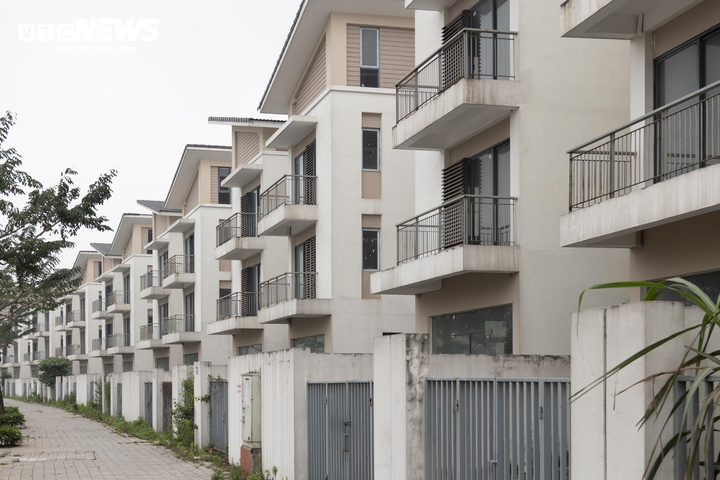Mr. Nguyen Van Dinh, Vice President of the Vietnam Real Estate Association, opined that the simultaneous enforcement of the three laws on Land, Housing, and Real Estate Business would enhance market transparency and unblock bottlenecks that have been hindering businesses.
Analyzing the situation, Mr. Dinh stated that while the real estate market had witnessed rapid growth over the past two decades, it started facing challenges after a strong surge in 2018-2019. One of the primary reasons for this slowdown was institutional and legal obstacles. Currently, there are over 1,200 projects across the country, involving more than 30 billion USD, awaiting inspection and audit.
With the recent amendments to these three laws, lawmakers aim to unify institutional regulations related to land use, eliminating overlaps and contradictions between the laws. This will promote clarity and transparency in investment activities and the utilization of land resources, thereby boosting practical capabilities.
As a result, feasible projects that were previously entangled in legal procedures will now be freed. The new law provisions and decrees will provide local authorities with a framework to resolve these issues. Consequently, real estate businesses will be empowered to unlock their capital and increase market supply.
Additionally, the land price framework, which previously mandated a five-year review by the central government, has been updated to an annual review conducted by local authorities. This decentralization will ensure tighter and more transparent land price information, creating a fairer playing field for businesses.
“This was a significant bottleneck, and if left unresolved, it would have continued to stall projects. The enforcement of the three real estate laws will address this issue,” emphasized Mr. Dinh.
The new regulations regarding investment, social housing, and foreign homeownership also add to the market’s allure going forward.

The enforcement of the three real estate laws will unblock many projects entangled in legal procedures. (Illustrative image: Minh Duc)
Sharing a similar perspective, Mr. Giang Anh Tuan, Director of Tuan Anh Real Estate Floor, stated that the three real estate laws coming into force would unblock bottlenecks and help businesses overcome obstacles.
Specifically, for businesses with pre-existing projects that only require legal finalization, there is an advantage in terms of lower capital costs. They can swiftly complete the legal processes, introduce their products to the market, and generate profits. Alternatively, they can choose to sell parts of their projects to other businesses.
On the other hand, enterprises seeking new project approvals will have to navigate multiple procedures, including negotiating land prices close to market rates and paying development taxes, which will increase overall costs. Nonetheless, having clear regulations from the outset will enable businesses to be more proactive.
Furthermore, a provision in the law now allows certain cases of state land lease, where the payment was made in a one-time lump sum, to be converted to annual payments. This will reduce financial pressure, leading to adjustments in housing prices and more flexible business operations.
Previously, businesses leasing land were only permitted to change the payment method from annual installments to a one-time payment for the entire lease period. However, the 2024 Land Law has introduced a provision allowing individuals, economic organizations, overseas Vietnamese, and foreign-invested organizations currently leasing land with a one-time payment option to switch to annual payments if they so choose.
If a portion of the lease has already been paid, that amount will be deducted from the annual payments as per the regulations.
Regarding social housing, Mr. Nguyen Hoang Nam, CEO of G-Home, noted that the 2024 Housing Law addresses several issues that had been hindering businesses in developing this segment.
Developers are no longer required to set aside 20% of the area for rental purposes and wait for five years before selling. This new provision is expected to overcome the issue of rental prices (publicly disclosed on information portals) being higher than market rates, in addition to simplifying complex legal procedures.
Resolving the land price determination bottleneck will significantly expedite the development of social housing projects.
In terms of eligibility and conditions for purchasing social housing, the requirement for an individual’s income (husband/wife) not to exceed 15 million VND per month, along with the additional condition that the combined income of both spouses should not exceed 30 million VND per month, has alleviated the constraints faced by many citizens.
Legal framework for condotel transactions
The condominium hotel (condotel) market, as well as the tourism real estate market in general, has not been regulated under the 2014 Real Estate Business Law. As a result, the ongoing obstacles of this type of real estate are expected to be resolved after the passing of the 2023 Real Estate Business Law. From a legal perspective, what are the positive aspects of the new law that investors need to be aware of in order to protect their rights and interests in transactions?
Real Estate Market Outlook After New Policy Implementation
Since the beginning of the new year in 2024, the good news from the Land Law (amendment) policy has spread strongly to the real estate market. The legal “gaps” are gradually being filled, bringing hope for a more positive cycle.


















